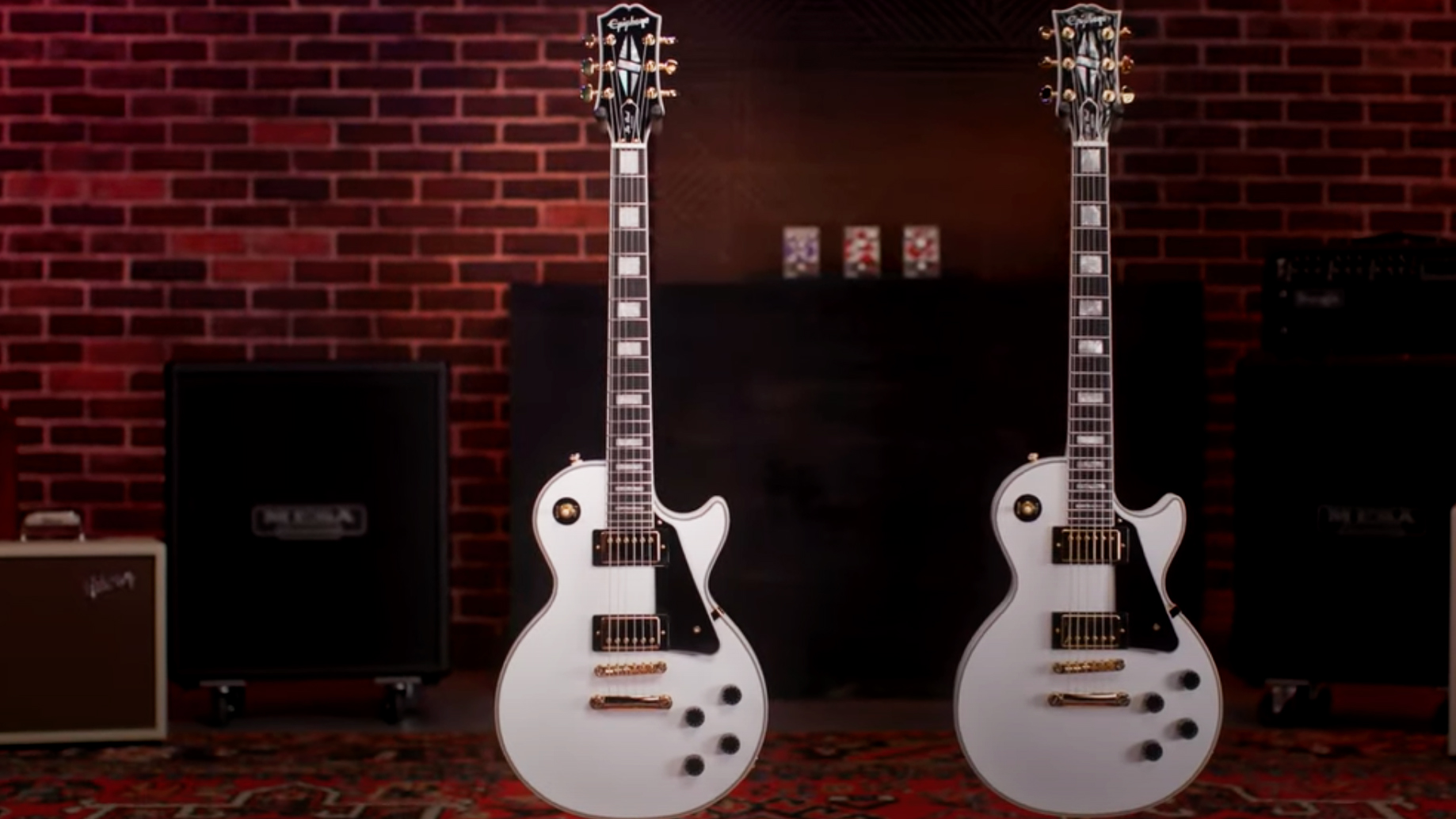
Epiphone has taken a fair amount of flak for its $1000+ Inspired By Gibson Custom Shop versions of established electric guitar classics like the Les Paul – especially its signature models.
Some players take issue with Epiphone stretching into these kind of price points with its Eastern-made instruments but these models are a conscious move to close the gap with Gibson, and the fact is there are still the more affordable versions available for us without the US pickups and other bells and whistles. The question is then, how much difference do they make?
Gibson themselves are at least happy to step in and offer a demo of the $799 Epiphone Custom Les Paul side by side with the more recent $1,299 Inspired By Custom Shop version to help people make up their own minds. And once again Dinesh Lekhraj proves to be one of the most musical and knowledgeable demo players we've seen from Gibson – which is why he's the host of the Gibson Gear Guide channel.
So what do we find? Dinesh breaks down the specs of both Alpine White guitars – the Inspired By Custom Shop version offers the Gibson-style open book headstock and the same USA pickups and hardwired electronics as the Gibson Custom Shop guitars. Plus a hard case.
But when it comes to sounds… neither is shabby! The Inspired By Gibson Custom Shop does sound fuller to my ears – and remember this is YouTube audio – but I'd expect that. It's also pretty brief and only features an overdriven comparison. It would be nice to hear the underrated middle position and of course the neck humbucker to get a fuller picture too. Well, one YouTuber in particular is ahead of us there.
Huge kudos to Sunny Haair for his diligence in not just comparing the Epiphone Les Paul Custom versions above, but the Gibson too. And it's really in-depth over 27-minutes with variables like pick gauge in the mix.
With these IGC range and this Les Paul Custom in particular, my opinion is that the gap between Gibson and Epiphone has been filled as much as it ever could be
The Epiphone Les Paul Custom Inspired By Gibson Custom Shop fares so well that at one point Haair actually believes he's playing his own Gibson Les Paul Custom through feel alone.
Want all the hottest music and gear news, reviews, deals, features and more, direct to your inbox? Sign up here.
"With these IGC range and this Les Paul Custom in particular, my opinion is that the gap between Gibson and Epiphone has been filled as much as it ever could be," says Haair, which does really go a long way to explaining the price. "Again, people will always split hairs over these things and that's totally ok… but this is the evolution for Epiphone that I wished we had when I was growing up."
But the standard Epiphone Custom also impresses with its ebony fingerboard, ProBuckers, GraphTech and Grover tuners. I've been especially impressed by the versatility of the Epiphone ProBuckers myself.
Of course, a guitar seeming audibly 'better' to you doesn't account for the other variables that affect preference – QC, neck feel, profile, tenon, body mass and weight being too (but we know these ain't gonna be light) and the slackness of the strings. Haair digs into a lot of this, which is great to see.
Check out the full video above, subscribe to Sunny Haair on YouTube and find out more about the Epiphone Les Paul Custom options at Sweetwater, Thomann, Guitar Center, Andertons and Reverb.

Rob is the Reviews Editor for GuitarWorld.com and MusicRadar guitars, so spends most of his waking hours (and beyond) thinking about and trying the latest gear while making sure our reviews team is giving you thorough and honest tests of it. He's worked for guitar mags and sites as a writer and editor for nearly 20 years but still winces at the thought of restringing anything with a Floyd Rose.


